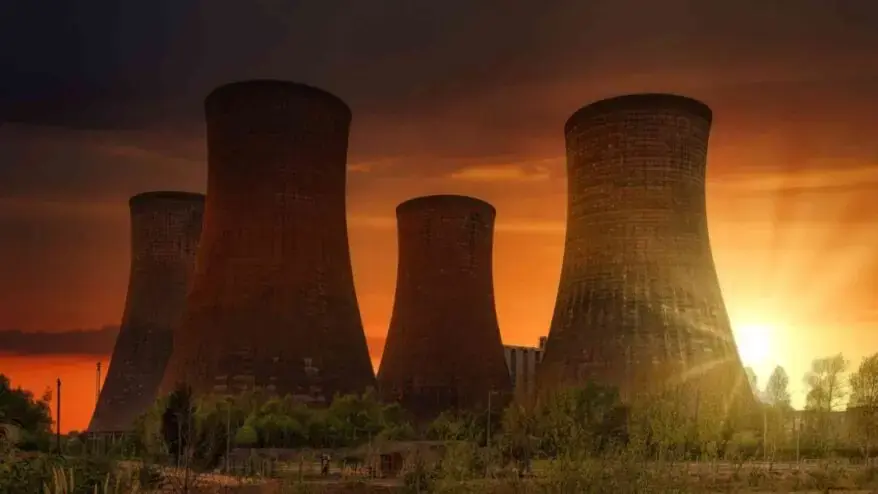Why Choose Nuclear Engineering? How to Become a Professional
Estimated reading time: 10 minutes
Brief History
Nuclear engineering traces its origins back to the discovery of atomic structure and radioactivity in the late 19th and early 20th centuries. The first major application of it was during World War II, with the development of nuclear weapons. Since then, the field has evolved to encompass a wide range of applications beyond weapons.
Importance of Nuclear Engineering in Today’s World
In the modern era, it plays a crucial role in energy production, medicine, scientific research, and more. Nuclear power provides a reliable and clean source of energy, while nuclear medicine has revolutionized diagnostics and treatments for various diseases. The advancements in nuclear technology have also contributed to scientific discoveries and innovations in various industries. This makes it a very good reason why to choose nuclear engineering as a career path.
What is Nuclear Engineering? Why to choose Nuclear Engineering?
Definition of Nuclear Engineering
It is a multidisciplinary field that involves the harnessing of nuclear energy for various applications. It encompasses the design, development, and operation of nuclear systems, including reactors, power plants, and medical equipment. This illustrates why to choose nuclear engineering for those interested in a broad range of applications.
Overview of the various disciplines within Nuclear Engineering
Within nuclear engineering, professionals may specialize in areas such as nuclear physics, mechanical engineering, nuclear materials, and nuclear waste management. This diverse field offers opportunities to work on cutting-edge technologies that have wide-ranging impacts on society. This makes one more good reason on why to choose nuclear engineering for those with varied interests.
Applications

Power generation
One of the primary applications of nuclear engineering is in nuclear power generation. Nuclear power plants use nuclear reactors to produce electricity, offering a reliable and low-carbon energy source. Nuclear power plants harness the energy released during nuclear fission to generate electricity, providing a steady and scalable power supply. The operation of nuclear power stations requires skilled engineers to ensure the safe and efficient production of electricity.
1. Nuclear power plants
Nuclear engineers work at nuclear facilities, where they design, operate, and maintain nuclear plants. Firstly, to start a career as a nuclear engineer, entry-level engineers must have relevant work experience and training in nuclear engineering. Additionally, Many employers require nuclear engineers to have a background in the fundamentals of engineering.
Nuclear engineers research and develop new nuclear equipment and nuclear fuel. In the nuclear industry, engineers must have a strong understanding of nuclear propulsion and the safety of nuclear facilities. As they advance in their field of engineering, nuclear engineers typically work on more complex projects and technologies.
2. Advantages of Nuclear Power
Nuclear engineers design, operate, and manage nuclear power plants, making them essential in the field of energy production. Many nuclear engineering students pursue entry-level nuclear engineering jobs to gain practical experience and further their careers. With a degree in engineering related to nuclear, nuclear engineers get the opportunity to work in power plants.
3. Challenges and Concerns
Nuclear engineers must face numerous challenges and concerns in the engineering field, including the first nuclear reactor and the management of nuclear power. Nuclear engineers who work in this area may advance to supervise a team of engineers or supervise nuclear power plants.
Engineering programs focused on nuclear power or material play a crucial role in preparing individuals for nuclear engineer positions. These engineers design and develop systems based on nuclear technologies, while also considering potential hazards and safety measures.
Also Read: Guide to Nuclear Chemistry
Nuclear Weapons
While controversial, nuclear engineering also plays a role in the development and maintenance of nuclear weapons. Engineers in this field work on the design and production of nuclear warheads and delivery systems. The application in weapons development requires strict adherence to safety protocols and international regulations to prevent proliferation and ensure global security.
1. Role of nuclear engineers in weapon development
Nuclear engineers play a crucial role in weapon development, utilizing their understanding of nuclear physics and engineering discipline to design and operate nuclear chain reactions. By studying and completing courses curricula, these engineers may advance to lead a team of engineers and technicians in developing weapon systems. Many nuclear engineers work in the energy industry, operating nuclear power plants or working for engineering firms that specialize in nuclear technology.
2. Ethical considerations
Nuclear engineers may advance to become engineering managers or move into leadership roles in the industry. They are responsible for ensuring the sustainability of nuclear power plants and must have a deep knowledge of types of nuclear and engineering principles. This includes designing and completing engineering exams related to the first commercial nuclear power plant. Ethical considerations also come into play when handling radioactive material used in nuclear plants and addressing engineering issues with people.
Medical Applications
In the field of medicine, nuclear engineering is utilized for various diagnostic and therapeutic purposes. Nuclear medicine involves the use of radioactive materials for imaging and treating medical conditions such as cancer and heart diseases. Nuclear engineers contribute to the development of medical devices such as PET scanners and radiation therapy equipment, helping to advance healthcare and improve patient outcomes.
1. Radiation Therapy
Engineers are essential in the field of radiation therapy, because they play a crucial role in designing and completing the treatment machines. A nuclear engineer is nonetheless responsible for ensuring that these machines are safe and operate effectively. Their specialized knowledge of nuclear processes is instrumental in the development of equipment used in delivering radiation therapy to patients.
2. Diagnostic Imaging
Diagnostic imaging is an essential medical tool that relies on advanced technology and the expertise of engineers to complete. These engineers use their knowledge of nuclear physics to design and develop imaging systems that can produce detailed and accurate images of the body. A nuclear engineer is responsible for ensuring that these systems operate safely and effectively, making them crucial members of the medical imaging team.
Educational requirements and career opportunities in nuclear engineering

To pursue a career in nuclear engineering, individuals typically need a degree in nuclear engineering or a related field. Additionally, gaining practical experience through internships or co-op programs can enhance job prospects. Nuclear engineers may work in industries such as power generation, research and development, or nuclear waste management. A professional engineer license and further certifications may be required for certain roles in the field.
Typical academic path for aspiring nuclear engineers
Aspiring nuclear engineers often start with a bachelor’s degree in nuclear engineering or a related discipline. Subsequently, graduate studies may be pursued for advanced positions or specialized roles in areas like nuclear fusion research or safety engineering. Moreover, continuing education and professional development are essential for nuclear engineers to stay current with industry trends and advancements in nuclear science and technology.
Job outlook and salary potential
The job outlook for nuclear engineers is influenced by factors such as technological advancements, policy changes, and economic conditions. While the field offers rewarding career opportunities, competition for positions in sectors like nuclear power generation or research can be intense. Nuclear engineers generally enjoy competitive salaries, with potential for growth as they advance in their careers or specialize in niche areas within the field.
Industries that employ nuclear engineers
It find employment opportunities in a variety of industries, including nuclear power, defense, healthcare, research institutions, and government agencies. These sectors offer diverse roles that cater to different interests altogether with skill sets within the field of nuclear engineering.
Future trends
Advances in nuclear reactor technology
The future of nuclear engineering is marked by ongoing advancements in reactor design and technology. Innovations such as small modular reactors and advanced fuel cycles aim to enhance the safety, efficiency, and sustainability of nuclear power generation. It play a key role in developing and implementing these technologies to meet the growing global energy demand while addressing environmental concerns.
Nuclear waste management
Effective management of nuclear waste is indeed a critical aspect of nuclear engineering that requires innovative solutions for long-term storage and disposal. With a focus on minimizing environmental impact and ensuring public safety, nuclear engineers are working on strategies for handling and treating radioactive waste materials. The development of advanced waste management techniques is certainly essential for the sustainable and responsible use of nuclear energy in the future.
Fusion energy research
Fusion energy research represents a promising frontier in nuclear engineering, with the potential to provide clean and abundant energy through nuclear fusion reactions. It are involved in projects like ITER that aim to demonstrate the viability of fusion power as a sustainable energy source. The pursuit of fusion energy requires collaboration across scientific disciplines and international partnerships in order to overcome technical challenges and make fusion power a reality.
Conclusion
In conclusion, why to choose nuclear engineering. This dynamic field offers a unique blend of challenges and opportunities, from advancing clean energy solutions to revolutionizing healthcare through nuclear medicine. With a strong foundation in science and technology, nuclear engineers play a pivotal role in addressing global energy demands, managing nuclear waste, and pioneering innovations like fusion energy. The field promises a rewarding career with competitive salaries, diverse industries, and the chance to make a lasting impact on society. For those passionate about solving complex problems and driving sustainable progress, nuclear engineering is a compelling and future-focused career choice.
References
- Pioro, I., and Duffey, R. (2014). Nuclear power as a basis for future electricity generation. Journal of Nuclear Engineering and Radiation Science, 1(1). https://doi.org/10.1115/1.4029420
- RAINS, D. A., and MITCHELL, K. A. (2009). Nuclear vs. Non‐nuclear attack submarine powerplants. Naval Engineers Journal, 105(3), 224-231. https://doi.org/10.1111/j.1559-3584.1993.tb02742.x
- Simpson, J. W. (2007). Prospects for nuclear energy. Fall Meeting of the Society of Petroleum Engineers of AIME. https://doi.org/10.2118/3119-ms
FAQs
Q: How to become a nuclear engineer?
A: To become a nuclear engineer, you primarily need a bachelor’s degree in nuclear engineering or a related field. However, some positions may require a master’s or doctoral degree.
Q. Why to choose Nuclear Engineering as a Career?
A: Choosing nuclear engineering offers a unique opportunity to work on cutting-edge technologies that address global challenges, such as clean energy production, advanced medical treatments, and sustainable solutions for nuclear waste. It is not only a multidisciplinary field but also provides diverse career paths. With the growing demand for low-carbon energy as well as advancements in nuclear technology, why to choose nuclear engineering, is a rewarding career option that allows professionals to make a significant impact on society and the environment.
Q: What kind of work experience is beneficial for aspiring nuclear engineers?
A: Prior work experience in a related field, such as mechanical or electrical engineering, can be beneficial for aspiring nuclear engineers. Internships or co-op programs can also provide valuable hands-on experience.
Q: What do nuclear engineers work on?
A: Nuclear engineers work on designing, developing, and maintaining nuclear power plants, reactors, and systems. They also conduct research on nuclear energy and radiation technology.
Q: How is the work of nuclear engineers related to nuclear energy?
A: Nuclear engineers are involved in the utilization of nuclear energy for various applications, including power generation, medical imaging, and nuclear weapons technology. Their work focuses on the safe and efficient use of nuclear materials and technology.
Q: What are the different types of nuclear engineering roles?
A: Nuclear engineers can specialize in areas such as reactor design, radiation protection, nuclear waste management, or nuclear fuel processing. They may work in industries ranging from power generation to medical research.
Additionally, to stay updated with the latest developments in STEM research, visit ENTECH Online. Basically, this is our digital magazine for science, technology, engineering, and mathematics. Further, at ENTECH Online, you’ll find a wealth of information.






